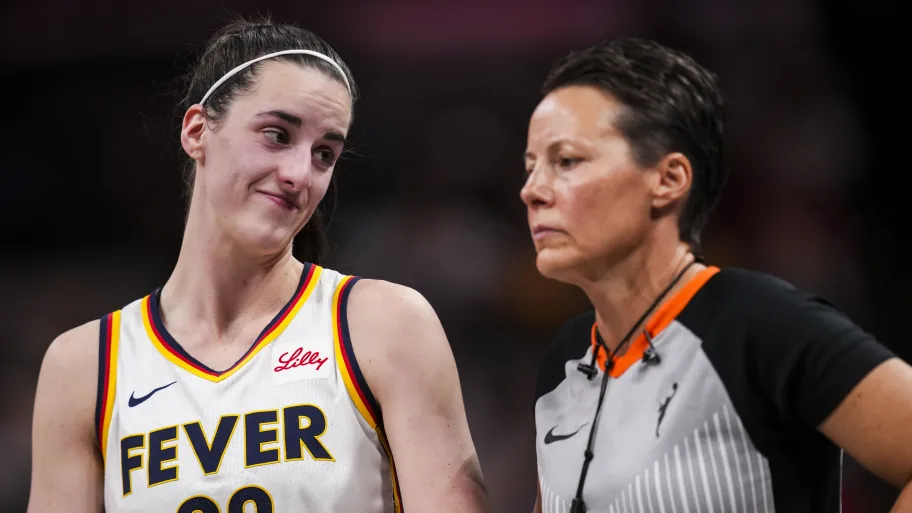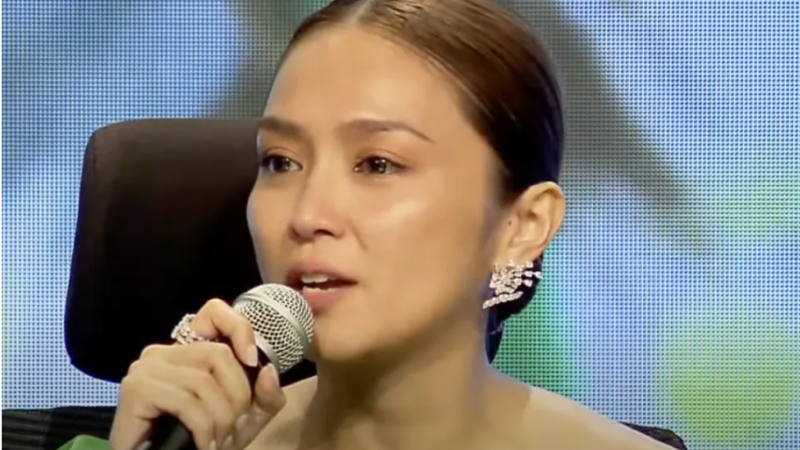Referee Makes Controversial Decision in Caitlin Clark’s Match: A Turning Point for Women’s Basketball

In a recent high-stakes game featuring Caitlin Clark, a pivotal moment unfolded that has sparked heated debates among fans and analysts alike. During the thrilling match, a controversial decision made by the referee overshadowed Clark’s outstanding performance, igniting discussions about officiating standards in women’s basketball. Known for her incredible skill and leadership on the court, Clark was not only a star player but also a focal point for the game, and this decision raised questions about the impact of officiating on the outcome of crucial matches.

The incident occurred in the second half when Clark, driving to the basket with her signature agility, was met with aggressive defense. As she maneuvered through defenders, she was clearly fouled—a moment that many fans believed should have resulted in free throws. However, the referee opted not to call the foul, leading to immediate frustration from Clark and her teammates. This pivotal no-call shifted the momentum of the game, affecting the dynamics and ultimately the final score. Fans watching from the stands and at home expressed their disbelief, with many taking to social media to voice their concerns over the apparent inconsistency in officiating.
This controversial decision has not only fueled discussions about the specific game but has also brought attention to broader issues surrounding officiating in women’s sports. Many advocates argue that women’s basketball deserves the same level of scrutiny and professionalism that is often applied to men’s games. With the growing popularity of the WNBA and collegiate women’s basketball, ensuring fair and accurate officiating has become increasingly critical. Clark, known for her composure and focus, handled the situation with grace, but the incident has sparked conversations about how such decisions can affect player performance and team morale.

Caitlin Clark’s rise to stardom has been marked by her ability to rise above challenges, both on and off the court. As one of the most exciting young talents in the game, her perspective on officiating is particularly valuable. After the match, she expressed her disappointment, emphasizing the importance of consistency in officiating. “Every player deserves fair treatment,” she stated, echoing the sentiments of fans and fellow athletes who advocate for improved standards. This incident not only highlighted Clark’s maturity as a player but also her role as a voice for change in the sport.
The aftermath of the decision has led to calls for greater transparency and accountability within officiating crews. As discussions continue, many fans hope that leagues will take steps to address these concerns, ensuring that referees are adequately trained and that their decisions are subject to review. The objective is to enhance the integrity of the game and to provide players like Clark with the fair playing field they deserve.

In conclusion, the controversial referee decision in Caitlin Clark’s match serves as a crucial reminder of the challenges faced in women’s basketball. As the sport continues to grow in popularity, ensuring fair and consistent officiating will be essential in maintaining its integrity and credibility. Clark’s ability to navigate such challenges speaks volumes about her character and leadership. Fans and analysts alike are eager to see how the conversation around officiating evolves, with the hope that it will lead to a more equitable experience for all athletes. With Clark at the forefront of the movement for change, the future of women’s basketball looks bright, and the journey is just beginning.





